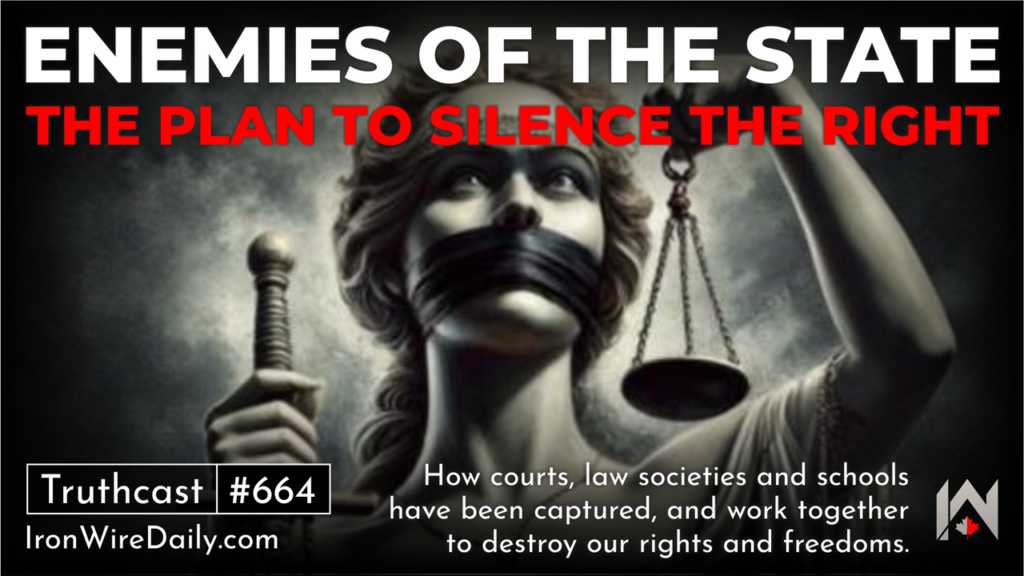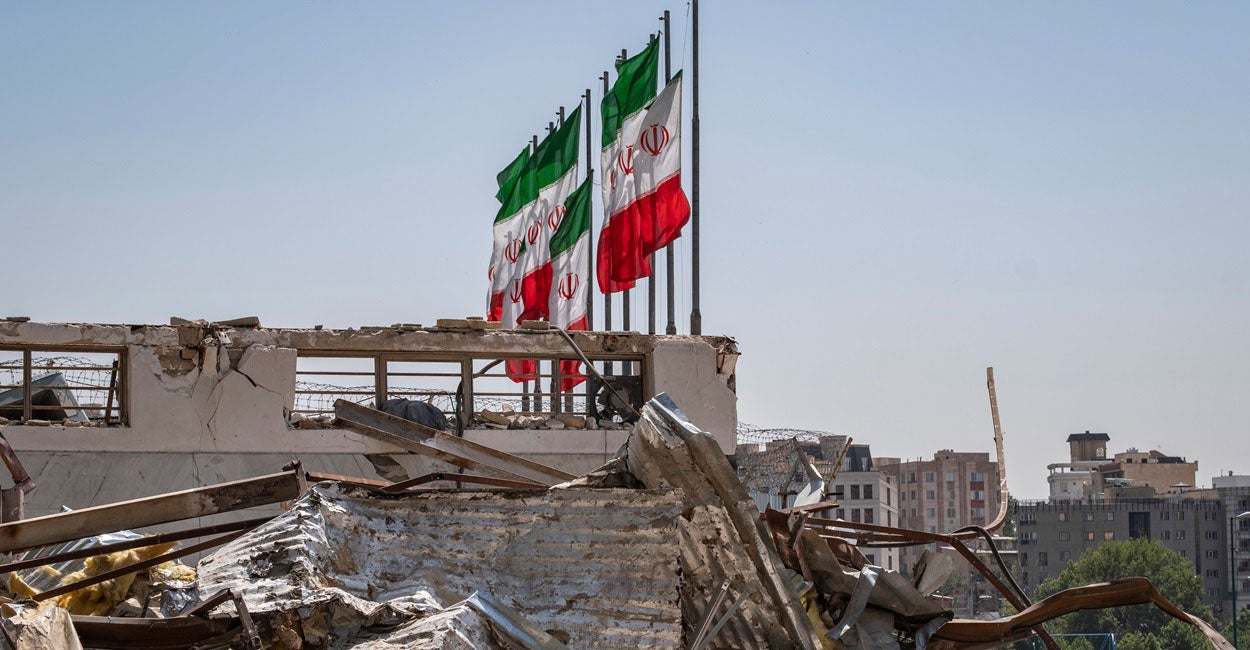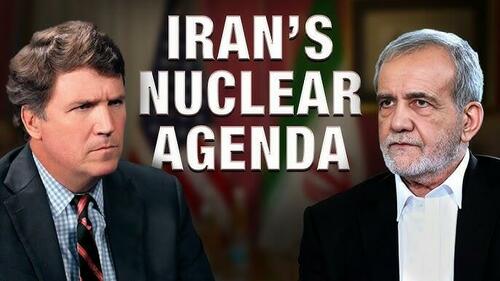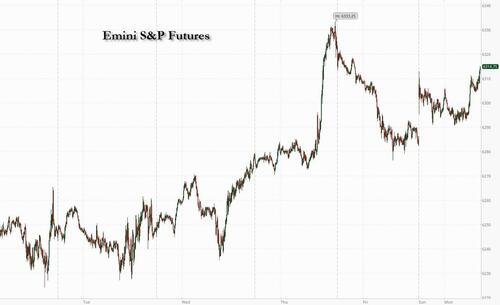Populist Rage and Woke Folly: Le Figaro Interviews Mario Loyola

On June 12, 2025, the leading French newspaper Le Figaro published an extended interview with Heritage Foundation senior fellow Mario Loyola. In “Populist Rage and Woke Folly Will Give Rise to an American Synthesis,” Laure Mandeville frames the current moment in American politics as an “apoplectic phase … marked by maximalist posturing and the theatrical overplaying of each side’s hand”:
A military parade celebrating the 250th anniversary of the U.S. Army [aimed] to portray a vision of patriotic leadership in harmony with the armed forces—at a time when Trump is in open confrontation with California Governor Gavin Newsom over the deportation of illegal immigrants. Trump’s activation of the National Guard and the deployment of 700 Marines to support ICE operations—despite opposition from the Democratic governor—adds a sharp undertone to the “patriotic narrative” the president is trying to construct. Trump casts himself as the leader of the law-and-order camp, the defender of the border, while portraying Democrats as the ones responsible for the “migrant invasion” threatening U.S. sovereignty. An estimated 8 million illegal immigrants are believed to have entered the country during the Biden administration. . . .
In reality, beneath the Trump–Newsom clash, another, quieter process may be taking shape—still tentative, still under the surface: an attempt to reckon with both the populist rage that brought Trump to power and the excesses of the “woke” movement that have dragged the Democratic Party into crisis.
That’s the underlying significance of what Mario Loyola describes as a “process of reconciliation” that The Heritage Foundation—closely aligned with Trump—is now tasked with facilitating between nationalist conservatives and more doctrinaire free-market Republicans. Loyola explains that the “populist moment” must be acknowledged and some of its demands accommodated in order to return the system to a more normal state. But he also emphasizes that the deep distrust of institutions among Trump supporters will not recede unless Trump succeeds in breaking the ideological stranglehold that the radical left has established on those institutions. . . .
This interview has been slightly edited for clarity.
LE FIGARO: You served in the first Trump administration. How would you characterize the political moment the United States is living through?
MARIO LOYOLA: In his book “Last Best Hope,” The Atlantic writer George Packer outlines four Americas, spanning the political spectrum from left to right. First, there’s “Young America,” embodied by the socialist and woke sensibility of Alexandria Ocasio-Cortez. Then there’s “Smart America,” pragmatic and technocratic—Packer is sympathetic to this group, which aligns with Clinton-era Democrats. The third is “Free America,” the classical liberal conservatives who believe in free markets and limited government. The fourth is “Real America”—economically nationalist, deeply patriotic, and anti-globalist. I encountered a version of the latter in France some 20 years ago in the National Front: a party that was simultaneously nationalist, pro-union, and far more anti–free market.
Today, it’s clear that “Young America” and “Real America” are becoming radicalized and increasingly reject the worldview of the other two groups. Packer argues that the “last hope” lies in returning to the key principle of equality before the law. The authors of the U.S. Constitution accepted equality under the law, without pretending that everyone starts from the same place. The notion that there should only be equality under the law if everyone starts from the same point was a frequent theme of the Democrats in the last election, but it is a Marxist critique of our society. The Left has taken up this idea and racialized the debate in the name of “equity,” turning anti-racism into a new form of racism. Packer argues that the far-right is now mirroring this approach, aiming to restore the balance in favor of whites.
What I observe is this: “Smart America” and “Free America” still believe in American institutions. The far-left views those institutions, both government and the free market, as inherently corrupt because of the country’s racist past. The national-conservatives of “Real American” see them both as corrupted by leftist control. A friend of mine from “Real America” believes we are in a “late-republic” phase like ancient Rome, and that we must now prioritize “survival” over the “sanctity of institutions.”
Yet we’re also seeing the first signs of reconciliation. The Heritage Foundation, which has been very engaged on the national-conservative front, is now taking on the mission of reconciling that camp with the free-trade conservatives, in part by integrating their ideas.
LE FIGARO: Can the classical liberal conservatives stop the nationalist wing from drifting further into Trump’s anti-institutional rhetoric? The damage has been significant…
LOYOLA: President Donald Trump’s second administration has been very confrontational with the “deep state” and the universities, because it sees these core institutions as having been “captured” by the Left and used to advance a neo-Marxist, deeply anti-American ideology—especially through the dogma of diversity, equity, and inclusion. The Trump administration’s goal is to dismantle the Left’s control over these institutions and restore them to their original, neutral role. Only then will national-conservatives begin to believe again in America’s democratic institutions. The objective is not to seize control of the universities, but to return to how they functioned in the 1980s, when ideological disagreements didn’t result in persecution. I understand why the Trump team’s aggressive tactics may worry people unfamiliar with how that administration operates. My colleagues at The Atlantic see echoes of authoritarian regimes. My reply is: We are living through a populist moment, which must give the people a voice—even if it’s uncomfortable.
LE FIGARO: Is this populist phase necessary before a return to something more normal?
LOYOLA: I hope we emerge from this chapter stronger, and that the experience itself helps facilitate reconciliation between national conservatives and free market conservatives. The new Republican leadership has its own reading of the crisis. They look at the Rust Belt, the collapse of the working class, and blame globalization. But we also need to point out that if the regulatory system had been more competitive in those areas, globalization wouldn’t have led to such outcomes. Free-market conservatives see this clearly; the national-conservatives are still forming their position.
LE FIGARO: Still, hasn’t Trump crossed a dangerous line—concentrating too much power and taking a hatchet to federal agencies like USAID?
LOYOLA: Anyone who serves in the executive branch serves the president. That was true in my case during the first Trump administration. But I was prepared to resign if the president did something I could not accept. I don’t believe he ever crossed that line. In my view, restoring the separation of powers is essential to the survival of democracy in America. And frankly, nothing Trump has done has damaged the Constitution as much as Franklin Roosevelt and the New Deal. He went way too far—including threatening to pack the Supreme Court in 1937. After Roosevelt’s landslide in 1936, the Court no longer had the political capital to say that the federal government lacked constitutional authority to implement the massive New Deal programs. Everyone knew it wasn’t constitutional, but no one said so. That did tremendous damage—not only by eroding the separation of powers between the federal government and the states, but also among the three branches of government. The result is a Court that legislates, a Congress that micromanages, and an executive with sprawling and quasi-authoritarian powers—which is, in fact, the essence of the progressive project.
As for Trump, I do not believe he has undermined Congress’s constitutional powers. There are areas—especially concerning spending—that have always been murky since the founding.
LE FIGARO: So you don’t see Trump as a threat to democracy?
LOYOLA: No, I completely disagree with that idea. Presidential power has certainly expanded—but that process began a century ago with the New Deal. It slows down under Republican administrations, but it never reverses. And every time someone tries, the courts step in and stop them. This is a deep, long-term and very dangerous problem. The only real way to save American democracy would be to undo the New Deal’s constitutional transformation and return most regulatory and taxing power to the states.
When I arrived at the White House, I proposed supporting a law [the REINS Act] that would require congressional approval for any major regulation. I thought surely some Democrats would be willing to support it as a check on what they saw as an authoritarian president. But the response was clear: “Never: Democrats would never vote to diminish the power of the presidency, not even to limit the power of Trump.”
LE FIGARO: Will there ever be reconciliation between radical America and pro-institution America?
LOYOLA: The debate will remain intense. But I see more grounds for hope on the conservative side than among Democrats, where radical ideas are more deeply entrenched. At The Heritage Foundation, we’re working on this, and I believe the Trump administration is too. The people involved fundamentally believe in American democracy. In that sense, the experts at The Atlantic predicting dictatorship are wrong.
LE FIGARO: Trump has quoted Napoleon to justify the idea that a president saving the nation is not bound by the law…
LOYOLA: Let’s go back to July 4, 1861: President Abraham Lincoln had to justify a series of radical decisions after secession and unrest in Maryland. Thousands were arrested, and courts ordered their release. Lincoln suspended habeas corpus—though only Congress has that constitutional authority. He said he had no choice and asked Congress to ratify the rescue of the Republic.
Turning to today’s crisis: in the face of 10 million illegal entries during the Biden years, we need extraordinary—but not unconstitutional—measures to restore U.S. border sovereignty. I’m confident that Trump will serve four full years without violating his constitutional powers.
LE FIGARO: Does Trump’s mobilization of the National Guard signal an expansion of presidential power?
LOYOLA: Not at all. What’s happening is fully within legal bounds. After years in which the left allowed the law to be flouted—across cities and along the border—letting mobs run free and enabling the arrival of 10 million illegal immigrants, it was inevitable that Americans would demand the return of law and order. Since 2020, the most striking political shift toward Trump on immigration has come among legal immigrants.













